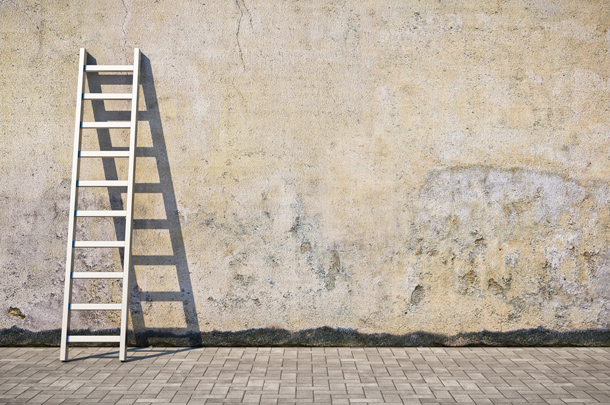BAY CITY, Mich. -- Hang on to your hats, guys! Friday the 13th is nearly upon us! Seeing as how we mark time using the Gregorian calendar, it is impossible to avoid the 13th falling on a Friday. The good news is: we'll never experience more than three in a year, and the even better news is: July 13th is the only one in 2018!
In honor of this spooky day, we at Graff Bay City thought it'd be fun to share with you some well-known (and not so well-known) superstitions and how they got started! Whether you believe or not, we bet that many of you remember subscribing to some of these as children, and maybe you even subconsciously do so even today.
WHAT IS SUPERSTITION?
Superstition is defined as both a "credulous belief in or reverence for supernatural beings" and a "widely held but unjustified belief in supernatural causation leading to certain consequences on an action or event, or a practice based on such a belief." Superstition is found throughout nearly all cultures in history, and often times the same superstition is shared across them with different consequences as well as different perceptions of what is "good" or "bad", usually depending on the religious and spiritual beliefs of that culture.
1. KNOCK ON WOOD
This common superstition has its roots in medieval times when European churchgoers would touch splinters of wood that supposedly came from the cross upon which Christ died, and was said to grant divine connection. Today, any wooden surface will do, and a few knocks before completing a task or while awaiting a decision is believed to tip the odds in one's favor.
2. BEARD POWER
Athletes are notoriously superstitious, and the world of sports is full of quirky practices and taboos that are said to either bless or curse. One of the most well-known is the "playoff beard" that hockey players and even fans sport during this crucial postseason time. The origin of the playoff beard is largely credited to the early-1980s New York Islanders, who went on to win four Stanley Cups in a row before being dispatched by the Edmonton Oilers in 1984. "It was just something that was just automatic with us," says legendary Islander Bob Nystrom, "you get on a winning streak, you don't want to change a thing."
The practice involves each member of the team not shaving until either their team is eliminated, or they (ideally) bring home the coveted Stanley Cup. Some pros say that the beard encourages team unity, and is a way for a player to get his head in the game the moment he looks in the mirror in the morning.
3. I CAN HEAR YOU TALKIN'
This superstition originates from an old Russian adage: "Left for love, right for spite." If your left ear is ringing, it means that someone is speaking well of you. If your right is ringing, however, it means someone is speaking badly of you. Another iteration of this superstition says the ears burn rather than ring, but the meaning of left and right tends to remain the same.
4. THE BIG BAD BREAK
In ancient myth, a person's reflection was believed to be a manifestation of their soul, and to endanger it was to risk misfortune befalling the physical self. Mirrors were believed to have magical powers as well as being tools of the gods, and to break one meant that its powers were terminated, the soul was astray from the body and bad luck would plague the person whose reflection it held last. It was the Romans who attached the "seven years" duration to the superstition, as they believed that's how long it took for the body to completely renew itself.
5. FINGERS CROSSED
Crossing your fingers for good luck originated with the early Christians, who would cross their fingers in order to invoke the power associated with the crucifix for protection against evil. The gesture and sentiment carried over into 16th-century England and was commonly used after someone coughed or sneezed. Considering that people of the time didn't know much about germs, they attributed sickness to evil spirits.
6. CAT-ASTROPHE
In devoutly religious colonial America, black cats were considered to be the familiars of witches or witches in disguise, and some even believed that they were spies for the Devil himself. If one crossed your path, it signified misfortune and death. This superstition ran so deep that anyone caught owning a black cat in the colonies was subject to extreme punishment including death.
Not every culture views them as bad luck charms, however. In Scotland, a black cat arriving at your house signifies prosperity. In ancient Egypt, it was thought that one could gain the favor of the goddess Bastet (who was depicted as a cat) by having a black cat in their home, and thus gain the protection of the warrior deity. And sailors in many cultures favored this breed over any other as a "ship's cat" because it was considered the luckiest for a successful voyage.
7. OUT THROUGH THE NOSE
Today, "blessing" someone after a sneeze is considered polite. However, some ancient cultures believed that the soul was in the form of air and was located in the head. When someone sneezed, it was believed that a person's soul could accidentally slip out of the body and an evil spirit could possibly take its place; unless they were blessed immediately after.
8. MAC-DEATH
If you've ever been involved in performing arts or know someone who has, chances are you know that saying "Macbeth" in a theater is strictly forbidden, and is instead referred to as "The Scottish Play." This superstition began with the 1606 debut of the Shakespearean tragedy, when the actor scheduled to play Lady Macbeth suddenly died minutes before showtime, forcing Shakespeare himself to fill the role. Since then, several performances of Macbeth have experienced some kind of disaster, and thus uttering the title inside the theater walls is considered bad luck unless one is rehearsing or performing the play itself.
There is, however, an "anti-curse" if you do accidentally let it slip. Exit the theater, spin around three times, spit over your left shoulder, and either recite a line from Shakespeare or scream a profanity.
9. HORNS AT THE DEVIL
Fans of heavy metal music know this hand signal popularized by Ronnie James Dio, but its true origin is much older. The "devil horns" as their known are actually meant to ward off evil, according to Italian superstition (Dio learned it from his Italian grandmother), by poking the Devil in the eyes to make yourself invisible to him.
10. UNDER THE LADDER
Walking under ladders is not only dangerous to your health, but also to your luck. This superstition originates from the ancient Egyptians who considered the triangle sacred as it represented the trinity of the gods (just look at the pyramids), and to walk through this shape that was created by a ladder resting against a wall was to defile it and bring misfortune upon yourself. Courtesy of Osiris, god of the dead, as well as his wife and son Isis and Horus, respectively.
11. DON'T SPILL THE SALT
Bad luck by spilling salt is a superstition in many cultures, though its roots are with the ancient Sumerians, who began the practice of throwing a pinch over the left shoulder in the event to negate the bad juju. In those days, salt was a precious commodity, on par with gold and silver. In order to discourage mishandling by laborers, bad luck was attached as a consequence. For someone who owed their way of life in large part to mysticism, this was more effective than instructing them to simply be careful.
Why did they throw it over their shoulder? In addition to being a prized resource and seasoning, salt has long been considered as a means of protection against evil spirits. If you dropped the salt, the only explanation was that one was toying with you, and they would appear over your left shoulder to attack since the left side of the body has historically been associated with evil. Throwing salt over one's left shoulder was said to "blind" the spirit and "get them off your back."
12. STEP ON A CRACK
Many of us remember avoiding cracks in the pavement as kids out of fear that doing so would break our poor mothers' backs. This superstition has varied dramatically throughout the years from the benign "step on a hole, break your mother's sugar bowl" to the plain weird warning to mid-20th-century children who were told that if they stepped on a crack in the pavement, they would be eaten by bears waiting for them around the corner.
Regardless of the consequence, this superstition stems from the belief that cracks and holes in the ground lead to the underworld, and that stepping on them would invite demons to enter the body through the soles on the feet.
13. THE NOTORIOUS NUMBER
Why is the number 13 associated with bad luck, anyway? The most popular explanation has to do with the Last Supper, at which thirteen people were in attendance (Jesus and the twelve apostles). Judas Iscariot was the thirteenth to sit at the table and thus, given his role as the betrayer, the number is associated with negativity and misfortune.
Whether religious or not, at least 10% of the U.S. population suffers from triskaidekaphobia, which is marked by fear of the number 13 and avoidance of it in all forms. The more specific paraskevidekatriaphobia, or fear of Friday the 13th, accounts for financial losses of upwards of $800 million annually as people avoid marriages, traveling, and even working in severe cases.
While Friday the 13th may be just another day to many of us, we're thinking you shouldn't take any chances. Why not schedule a service appointment with us to ensure that your vehicle is running at its best? Our stellar service team is certainly worth their salt, and our dealership dog Winston will keep away any black cats that saunter your way while he's sniffing out amazing deals for you!
Hank Graff Chevy is located at 3636 Wilder Road, Bay City, MI 48706 and we are here to help our community grow to become an even better place to call home! For more information on Hank Graff Chevrolet, or for any questions call us at (989) 684-4411 or visit our website: www.GraffBayCity.com.















No comments:
Post a Comment